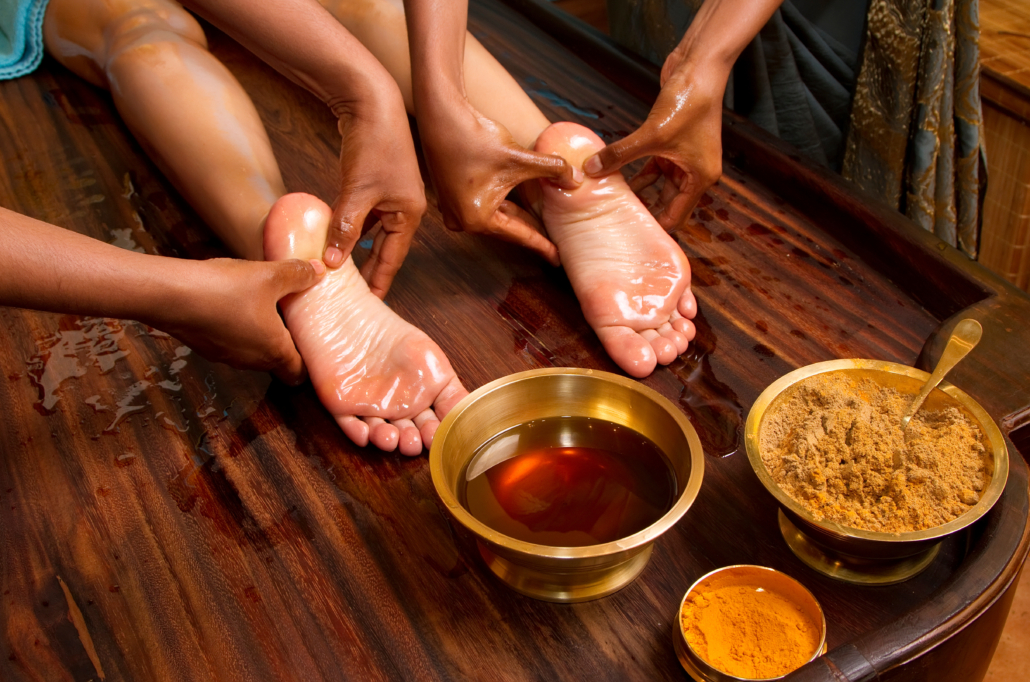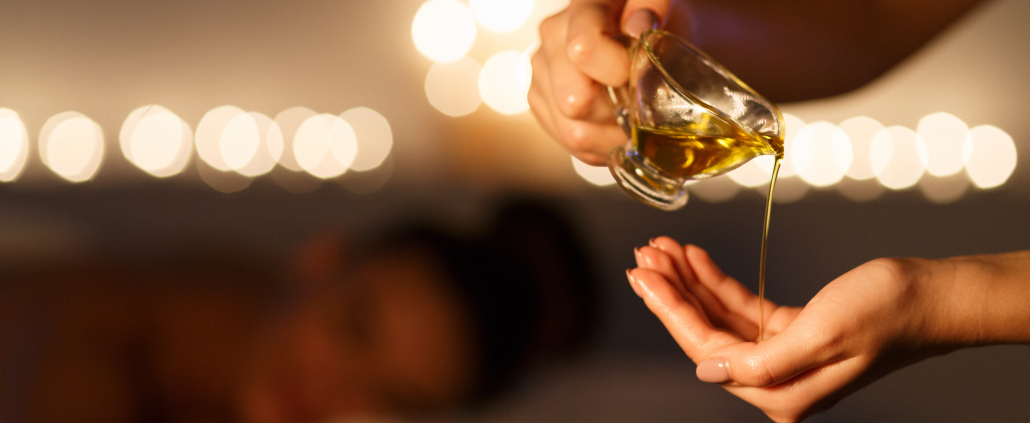The Ancient Ayurvedic Practice of Abhyanga Massage
What is Abhyanga?
Abhyanga is a transformative full-body massage using warm herbal oils tailored to individual body types or doshas. This practice is an integral part of Ayurveda, the ancient Indian system of medicine that emphasizes balance in bodily systems through diet, herbal treatment, and yogic breathing.
Historical Roots
Originating from the Siddha medicine system, brought to Southern India by the sage Agastya, Abhyanga is believed to be one of the oldest healing therapies—dating back as far as 8,000 years. This method has influenced various global healing practices in countries like Greece, Indonesia, China, and Persia, highlighting its universal appeal and adaptability.
How to Prepare for Abhyanga
Products Needed:
- ½ cup of your chosen oil
- Squeeze bottle for oil
- Optional: Essential oils and herbs for enhanced benefits
Step-by-Step Guide
- Warm the oil in a squeeze bottle by placing it in hot water.
- Begin by applying oil to the entire body, ensuring enough for easy glide over the skin.
- Use rhythmic strokes, adjusting pressure as needed for different areas: stronger on feet and toes, lighter on the face and abdomen.
- Include circular motions at joints and long strokes on limbs for optimal lymph flow and flexibility.
- After massaging, relax for 10 minutes to allow the oil to penetrate deeply, then follow with a warm bath or shower.
Selecting Oils by Dosha
- Vata (dry skin): almond, sesame, olive
- Pitta (sensitive skin): coconut, sunflower
- Kapha (oily skin): sunflower, mustard
Essential Oils for Dosha Balance
- Vata: Warm, grounding scents like cardamom and orange
- Pitta: Cooling oils such as sandalwood and lavender
- Kapha: Stimulating aromas like eucalyptus and rosemary
Benefits of Abhyanga
Research and ancient texts, such as the Astanga Hridaya by Acharya Vagbhata, suggest numerous benefits:
- Enhances longevity and nourishes the body
- Improves flexibility, sturdiness, and lymph flow
- Reduces effects of aging and fatigue
- Alleviates nervous system afflictions, improving mental clarity and vision
- Supports better sleep and overall vitality

Ideal Conditions for Abhyanga
This massage is particularly beneficial for:
- Stress and fatigue
- Muscular aches and joint stiffness
- High blood pressure and various skin conditions
Contraindications
Avoid Abhyanga if you have:
- Recent fractures or severe injuries
- Skin infections or severe chronic illnesses
- Specific conditions such as during pregnancy
Timing and Frequency
- Duration: 15-35 minutes per session
- Frequency: Daily, ideally before bathing
- Best Time: Morning to invigorate or evening to relax
References and Further Reading
- Douillard, Dr. John. The Encyclopedia of Ayurvedic Massage. North Atlantic Books, 2004.
- The Art & Benefits of Abhyanga Massage
- Effects of Abhyanga on the Autonomic Nervous System
- Ayurvedic Abhyanga Massage and Stress
Disclaimer: The information in this blog post is provided for general informational purposes only and is not intended as medical advice. For personalized advice or treatment, please register as a patient at Radiance Healthcare, or consult with a qualified healthcare provider for any medical concerns.



